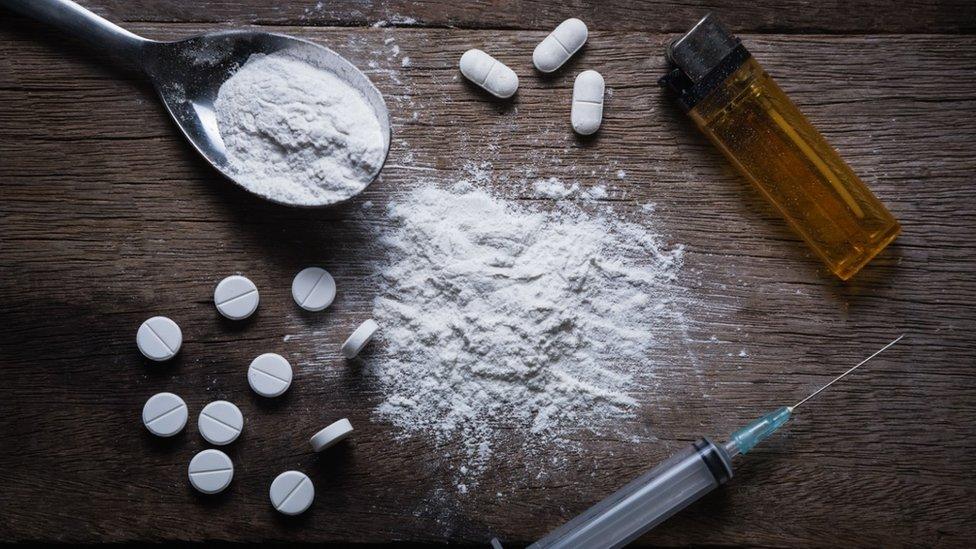Delay to drug checking services for Scottish cities
- Published
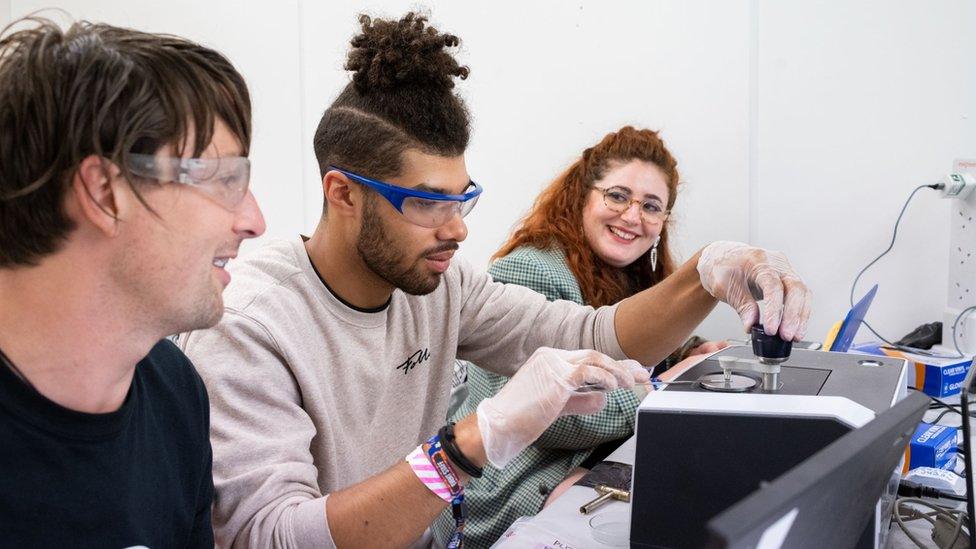
The UK's first regular drug checking service is set to open in Bristol this year
Plans to introduce drug checking services in three Scottish cities have stalled.
The centres for Glasgow, Dundee and Aberdeen would see people drop off illegal substances to be tested with the aim of reducing drug-related harm.
The Scottish government previously said that applications to the Home Office for approval for the centres would be submitted in early 2022.
But "unanticipated challenges" mean the applications have yet be submitted.
The Scottish government said these challenges include issues with staffing and premises, but added that it was committed to delivering the facilities and expected applications would be put in "very shortly".
The UK's first Home Office licensed drug-checking service in Bristol is expected to start regular testing in the coming months.
The service, run by a charity called The Loop, has been operating services at pop-up sites, including music festivals.
It has found that about a third of people who drop off a substance for testing have already had ill effects from it.
Scotland has the highest drug death rate recorded by any country in Europe with the number of suspected deaths increasing towards the end of 2022.

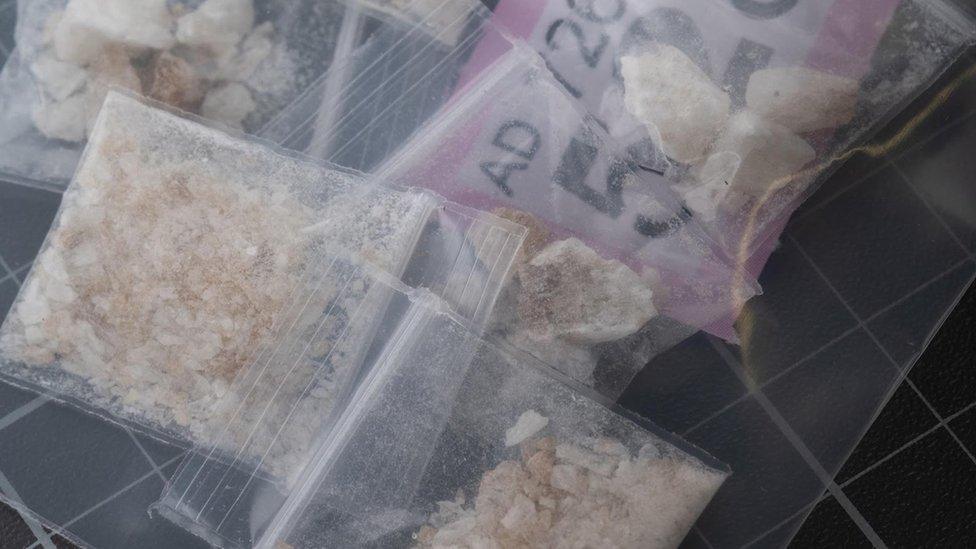
How drug checking services work
Details of how the Scottish drug checking facilities would operate are still being finalised, but The Loop's plans for a regular testing facility work like this:
1. A person comes to the drug checking facility with the substance they have concerns about and put it into in a secure amnesty box.
2. The substance is catalogued and a team of chemists conduct a number of tests to identify its contents and strength. Crucially, the surrendered drugs are destroyed in the testing process and none are returned to the person.
4. The drug user returns to the facility to be given information regarding the substance but also has a healthcare consultation with a professional taking in related issues such as the risks of overdose and poisoning.
5. The testing results and any emerging trends are shared with drug-using communities and public health officials with a view to letting people know of any potentially deadly issues as soon as possible.

The majority of drug deaths in Scotland involve some form of benzodiazepines, such as diazepam and etizolam.
The use of non-prescribed benzodiazepines or "street Valium", which can be much stronger than prescribed tablets, has been a growing problem in recent years.
The European Monitoring Centre for Drugs and Drug Addiction has said these fakes often contained new or uncontrolled benzodiazepines which pose a "high risk of severe poisoning".
Contaminated batches of the likes of heroin or other class A drugs have also been linked to drug deaths across Scotland over the years.
'Unanticipated challenges'
A Scottish government spokeswoman said the licence applications were expected to be submitted to the Home Office "very shortly".
She said: "We're committed to delivering drug-checking facilities in Scotland, which international evidence shows are a key component of an evidence-based approach to reducing drugs harms.
"This is the first time this innovative option has been explored in Scotland.
"As a result, progress towards implementation by local partners has been slower than planned and there have been a number of unanticipated challenges which have led to delays - including staffing changes and issues with premises."
Related topics
- Published18 November 2022

- Published30 July 2021
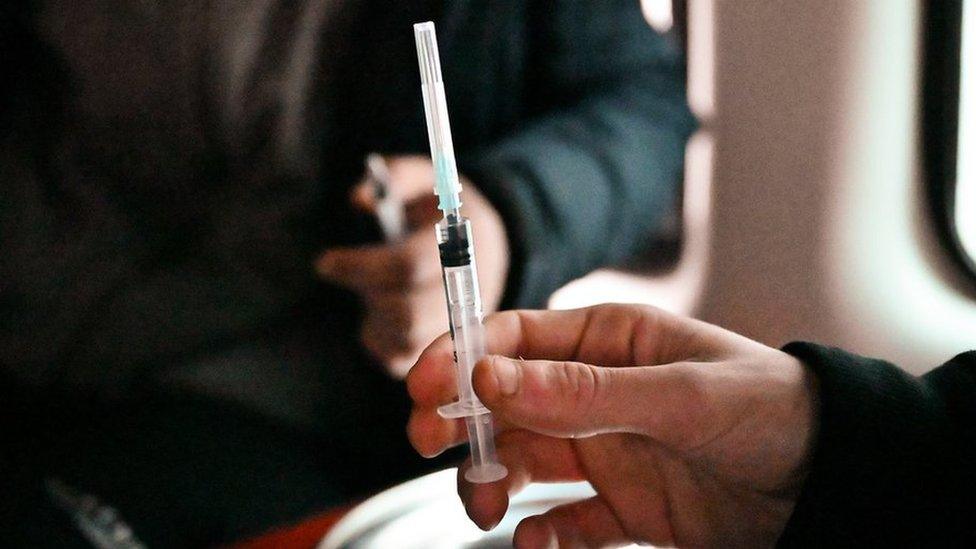
- Published24 January 2023
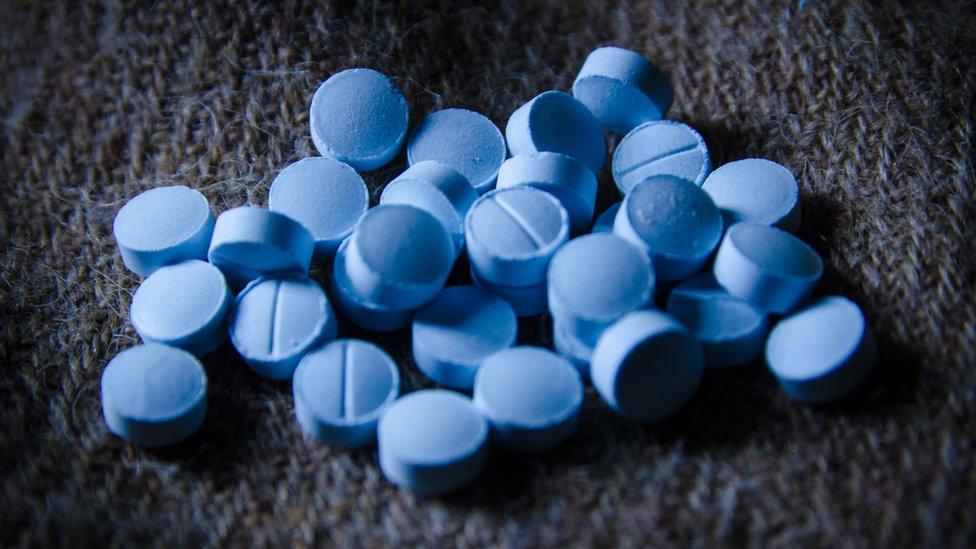
- Published20 January 2021
